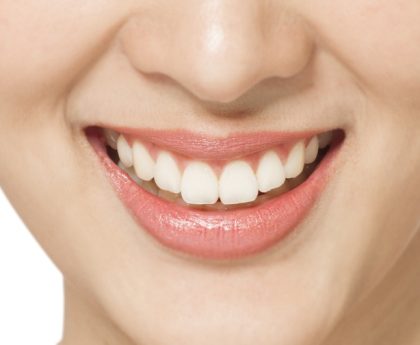When a tooth gets knocked out, the suddenness and surprise can be overwhelming. However, the first few moments are critical. The steps you take immediately can make a big difference in whether the tooth can be saved.
-
Stay Calm: Keep your composure to think clearly and act swiftly.
-
Pick It Up: Carefully lift the tooth by the crown, not the root, to minimize damage.
-
Inspect the Tooth: Gently rinse it with saline or milk to clean any debris, but do not scrub.
Can You Save the Tooth?
Saving a knocked-out tooth is a race against time. It would be best if you took immediate action as soon as possible, as the longer the tooth is out of the mouth, the harder it is to reimplant it successfully.
-
Try Reinserting: If possible, gently place the tooth back in the socket and hold it in place with a clean cloth or gauze.
-
Keep It Moist: If reinserting isn’t an option, keep the tooth moist in a glass of milk or a tooth preservation kit.
-
Seek Quick Help: Rush to the nearest dentist or emergency room. Time is crucial for the tooth’s viability.
Minimizing Pain and Swelling
While addressing the immediate needs of your tooth, it’s equally important to manage your discomfort efficiently.
-
Cold Compress: Apply it to the face near the affected area to reduce swelling.
-
Over-the-counter pain Relievers: Use recommended pain relief medication to alleviate discomfort.
-
Minimal Pressure: If the tooth is back in place, bite down softly on a piece of gauze to stabilize it.
Preventing Infection
Following the traumatic event, you need to prevent any possible infections that may jeopardize the healing process.
-
Keep Clean: Rinse your mouth gently with a saline solution to cleanse the area.
-
Avoid Touching: Reduce the risk of introducing bacteria to the socket or wound by not touching it.
-
Antibiotics: Follow medical advice if antibiotics are prescribed to prevent infection post-injury.
When Is It Time to Visit the Dentist?
In case of a knocked-out tooth, I would like to ask you to please visit the dentist as quickly as possible. Immediate professional assessment and potential insertion can increase the chances of saving the tooth.
Most general dentistry services are equipped to handle such dental emergencies. During these visits, the dentist can also provide a dental exam and cleaning, which are fundamental parts of routine dental check-up practices that play a significant role in overall dental healthcare.
Ensuring Long-Term Recovery
Once your emergency has been addressed, you’ll need to focus on the long-term health of your tooth and mouth.
-
Follow-Up Appointments: Keep all subsequent visits to monitor the healing process.
-
Dental Care Routine: Maintain a good oral hygiene regimen to support recovery and prevent further issues.
-
Protective Gear: If engaged in sports or activities that put you at risk, consider wearing a mouthguard.
Understanding Dental Services for Future Care
Knowledge of the types of dental services available can help you make informed decisions about the care and treatment necessary for maintaining a healthy smile. For example, for those looking to straighten their teeth discreetly, exploring options like advanced Invisalign treatment can be beneficial. This service, among other preventive, restorative, and cosmetic procedures, represents the breadth of dental services designed to cater to a wide range of patient needs, from teeth whitening services to dental surgery services.
How Can You Explore Cosmetic Dentistry Procedures?
For those looking to enhance the appearance of their smile, one can explore cosmetic dentistry procedures that include services like veneers, bonding, and crowns. Dental care facilities often offer various cosmetic options in addition to their routine and emergency dental service, catering to those who not only need essential care but also desire aesthetic improvements, promoting confidence and dental hygiene importance.
Preventative Measures for the Future
To avoid dental emergencies like a knocked-out tooth, preventive measures go a long way in maintaining oral well-being.
-
Regular Dental Visits: The importance of regular dental visits cannot be understated for preventive dentistry.
-
Oral Care Practices: Adopting consistent oral care practices is fundamental for gum disease prevention.
-
Dental Hygiene Tips: Following dental hygiene tips from professionals helps prevent tooth decay.
Including professional teeth cleaning in your dental care routine is essential for maintaining optimal oral health. It removes plaque and tartar that brushing and flossing at home can’t, preventing periodontal diseases. Dental cleaning procedures, along with home dental care, are cornerstones of effective dental hygiene and oral care practices.
How to Financially Plan for Dental Health Emergencies?
Planning for unforeseen dental issues ensures you can handle them without facing significant financial strain.
-
Dental Insurance: Investing in dental insurance can alleviate the cost of unexpected dental healthcare.
-
Affordable Dental Services: Researching and choosing providers that offer affordable dental services helps in managing expenses.
-
Family Dentistry: Seeking care from family dentistry services can often provide cost-effective solutions for the whole family.
To End
Understanding how to handle a knocked-out tooth is a vital piece of knowledge that could save your smile in a stressful situation. Apart from reaction during an emergency, integrating oral health check routines, such as a comprehensive dental exam and cleaning, along with embracing proactive oral care practices, will significantly contribute to your overall dental health.
Lastly, being prepared for the costs associated with dental emergencies by seeking out options like pediatric dentistry or affordable dental services and considering dental insurance ensures comprehensive care doesn’t become a financial burden.




